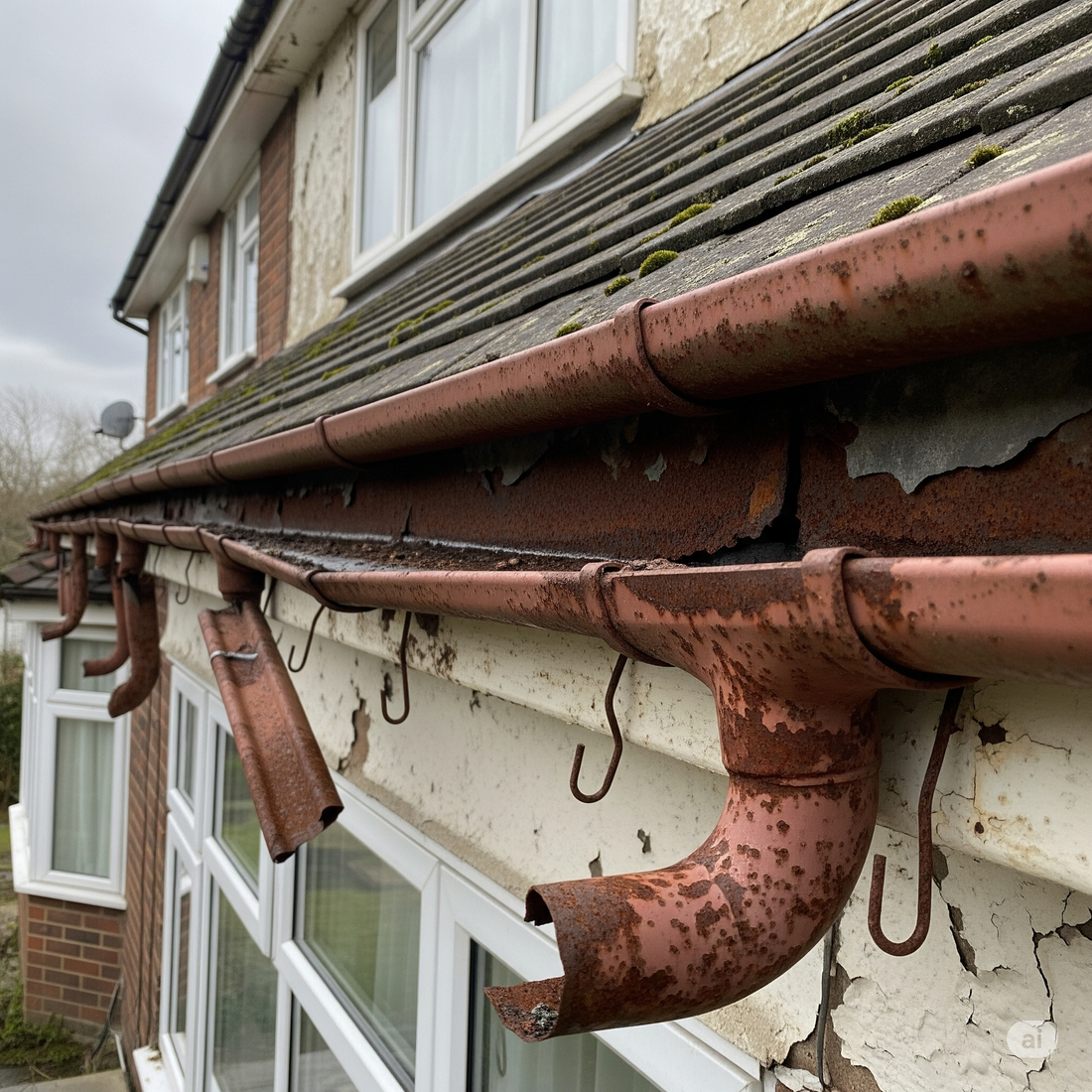
When to Replace Your Gutters Instead of Cleaning
Share
Gutters play a critical role in protecting your home from water damage. They direct rainwater away from your roof, siding, and foundation—but only if they’re working properly. While regular cleaning helps keep gutters in good condition, there comes a time when cleaning isn’t enough and replacement is the smarter choice.
So how do you know when it’s time to stop scooping leaves and start shopping for new gutters? Here are the key signs.
1. Frequent Leaks or Holes
Small leaks can often be sealed with gutter caulk or patches, but if you find yourself constantly repairing holes, it’s a sign your gutters are wearing out. Multiple leaks throughout the system usually mean it’s time for replacement.
2. Rust and Corrosion
Metal gutters naturally wear down over time, especially if they’ve been exposed to standing water or harsh weather. Rust spots weaken the structure, and once corrosion spreads, cleaning won’t solve the problem.
3. Sagging or Pulling Away from the House
Gutters should sit firmly against your roofline. If they’re sagging, bowing, or pulling away, it often means the fasteners are failing or the fascia board is damaged. In many cases, replacement is more effective than repeated repairs.
4. Cracks and Splits
Tiny cracks may not seem like a big deal, but they quickly expand and allow water to seep into siding, fascia, and foundations. If your gutters are cracking in several areas, replacing them is safer and more cost-effective.
5. Peeling Paint or Water Damage Around Gutters
If you notice peeling paint, water stains, or rot near your gutters, it’s a sign that water is escaping instead of being directed away. Persistent water damage often points to failing gutters that need replacing.
6. Pooling Water or Soil Erosion Near the Foundation
The whole purpose of gutters is to direct water away from your home. If you see puddles forming or your landscaping eroding near the foundation, your gutter system may no longer be doing its job.
7. Age of the Gutters
Most gutters last 20–30 years, depending on the material and maintenance. If your gutters are older than that, replacement is usually the best option, even if they seem to be working okay.
When Cleaning Is Still Enough
- A single clog or minor debris buildup
- One small leak that can be patched
- Gutters that are structurally sound but just dirty
In these cases, professional cleaning and maintenance can restore function.
Final Thoughts
Gutter cleaning is an important part of home maintenance, but it won’t fix serious structural issues. If your gutters are rusting, sagging, or causing water damage, it’s time to consider replacement.
Pro Tip: A professional inspection can help determine whether your gutters just need a cleaning—or if it’s smarter (and cheaper in the long run) to replace them entirely.
